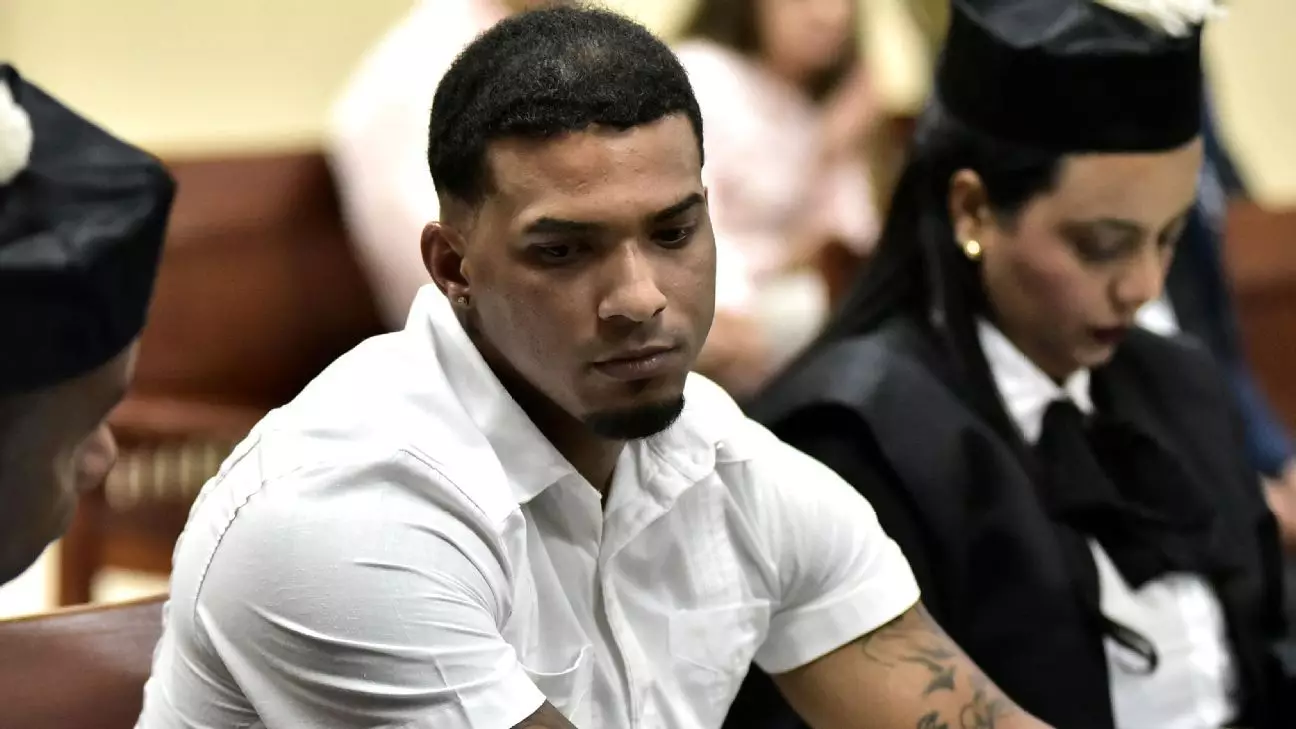In a shocking turn of events, prosecutors in the Dominican Republic have requested a five-year prison sentence for suspended Tampa Bay Rays player Wander Franco, following serious charges of sexual abuse involving a 14-year-old girl. This case has sent ripples through the world of sports, highlighting the darker underbelly often hidden from the public eye. With allegations that Franco engaged in a four-month illicit relationship with the minor, the legal proceedings have quickly escalated, and the implications for Franco’s future are severe.
What makes this situation particularly disturbing is the assertion that Franco allegedly funneled large sums of money to the minor’s mother with the intention of securing her consent for the relationship. Prosecutor José Martínez articulated this chilling accusation in court, stating that raids on the minor’s home revealed a staggering total of $103,500, allegedly transferred by Franco. This aspect of the case raises unsettling questions about power dynamics, manipulation, and consent, especially when considering the age of the victim.
Legal Maneuvers and Counterarguments
Franco’s defense team, helmed by attorney Irina Ventura, has not backed down, presenting a litany of counterarguments to undermine the prosecution’s claims. They are questioning the clarity of the accusations, asking whether Franco is merely an accomplice to his alleged co-conspirator, Vanessa, or the primary perpetrator. Such legal maneuvering points to a fundamental tension in the justice system: the balance between protecting victims and ensuring the rights of the accused. It’s intriguing to ponder how the ambiguity inherent in sexual abuse cases complicates the judicial landscape, especially when one party holds significant fame and fortune.
Moreover, the defense has vehemently called for the dismissal of charges against Franco, asserting that the evidence presented lacks sufficient clarity and that their client is innocent until proven guilty. This argument reflects a deep-seated principle of law that is often put to the test in public opinion. As the case unfolds, the attention surrounding it raises questions about society’s response to accusations against high-profile figures.
The Broader Implications for Sports Culture
This controversy serves as a stark reminder of how celebrity status can influence both public perception and the legal system. Franco, once a promising talent in Major League Baseball—striking a lucrative $182 million contract—now finds himself on administrative leave and is restricted from playing while this case is adjudicated. Whether or not he is ultimately convicted, the damage to his reputation and career will likely be irrevocable.
The repercussions extend beyond Franco alone; they underscore a pressing need for sports organizations to critically examine their player conduct policies. The culture that allows for such behavior to exist, often shielded by the glamour of sports, must be addressed. Going forward, will this case prompt MLB to take a firmer stance on issues of morality and player accountability?
As the situation develops, both fans and critics of Franco are left grappling with conflicting feelings of outrage, disappointment, and disbelief. The intersection of celebrity, power, and morality is a complex arena to navigate, and unfortunately, it appears that this is just one more chapter in a long history of scandals within the sports world. The outcome of this case will undoubtedly resonate well beyond courtrooms and locker rooms, making it clear that accountability must finally be prioritized in the realm of athletics.

